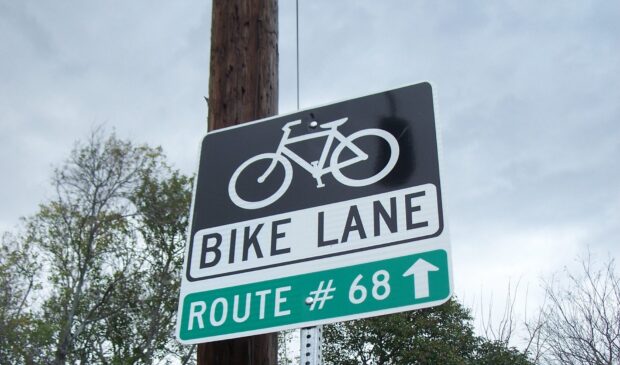Newsletter Signup
The Austin Monitor thanks its sponsors. Become one.
Most Popular Stories
- The Austin area won’t be seeing a lot of bluebonnets this year. Here’s why.
- SXSW shrinks as indie venues contemplate competitiveness
- Eviction crisis spreads as affordability pressures worsen
- City pauses $10M in airport art over concerns local creatives were excluded
- Audit shows former Austin Water employee directed search of boss’ inbox
-
Discover News By District
Popular Whispers

Mobility councils support extensive lane conversions despite concerns
Thursday, July 18, 2024 by Dylan Ebs
A proposal to convert a lane on every city-owned main road into a bus or bike lane within five years has received support from mobility advocates, who passed a recommendation calling on City Council to consider the plan.
Backed by Safe Streets Austin, the CityLeap plan looks to decrease the number of cars on the road by converting lanes on arterial roads – those with two or more lanes in each direction – for protected use by bikes and buses. Advocates hope the plan will help the city reach its goal of increasing the percentage of trips made by public transit and other carless modes to 50 percent by 2030.
During a joint meeting between the city’s bicycle and pedestrian advisory councils on Tuesday, members debated how realistic the plan is, as some expressed concern that a complete overhaul of Austin’s roads in five years is not feasible, while others argued bold change is needed and that the plan already has support in City Hall.
“To pull this off in five years will be an enormous undertaking,” said Adam Greenfield, an advocate with Safe Streets Austin. “It will require us to do things differently. There will also be significant backlash – and any meaningful response to climate change will have backlash, and Council needs to act on data and evidence.”
If the plan is eventually adopted, the changes would affect approximately 130 miles of city-owned roads, including Menchaca Road, William Cannon Drive and Anderson Lane. Roads owned by the state of Texas would not be affected. Safe Streets Austin estimates that CityLeap would cost $230 million.
Bicycle Advisory Council Member Matt Land said that while he shares the same goals as Safe Streets Austin, what they proposed “feels too implausible.”
Katrina Miller, a member of the Pedestrian Advisory Council, said, “It’s a little pie in the sky, I agree, and I think that’s exactly what it should be.” Fellow member Alex Flores said his concern with the CityLeap plan is that it calls for actions that city staff is already working on.
“To be frank, what he presented or what was presented to us today, it’s not holistic. There’s things missing,” Flores said.
Five Council members – Vanessa Fuentes, José Velásquez, Ryan Alter, Paige Ellis and Alison Alter – signaled their support for the plan in a May letter to City Manager T.C. Broadnax that listed multiple climate and mobility initiatives, including CityLeap.
Council Member Zo Qadri’s office told the Austin Monitor that Qadri supports the plan, saying that “converting space on our streets to make more space for people walking, biking, and rolling improves safety and resiliency in our city. And ultimately, mobility policy is climate policy.”
The Joint Sustainability Committee previously gave unanimous support in April for the CityLeap plan in a 13-0 vote.
Spencer Schumacher, chair of the bike council, noted the support from Council members.
“I don’t see anything less than this getting us to there, and I’m not ready yet to say that we can’t achieve those goals we put forward,” Schumacher said.
“If the worry is that we would seem unserious by supporting this proposal, I think by stating that this proposal is unserious, we are kind of casting doubt on the opinions of the Council,” he added.
Miller echoed Schumacher’s remarks and drew a distinction between the function of the advisory council and that of City Council, saying the advisory council should not water down their proposals.
“Our role is to be the outspoken advocate for the rights of people that aren’t driving to still be able to get around the city,” Miller said.
Three members between both councils abstained from the vote, and no one voted against the recommendation.
“If we try everything we can and it turns out that only 6 percent of people in Austin will take transit, then we can accept defeat in 2039 – but I don’t want to accept it in 2024,” Schumacher said.
Photo made available through a Creative Commons license.
The Austin Monitor’s work is made possible by donations from the community. Though our reporting covers donors from time to time, we are careful to keep business and editorial efforts separate while maintaining transparency. A complete list of donors is available here, and our code of ethics is explained here.
You're a community leader
And we’re honored you look to us for serious, in-depth news. You know a strong community needs local and dedicated watchdog reporting. We’re here for you and that won’t change. Now will you take the powerful next step and support our nonprofit news organization?





